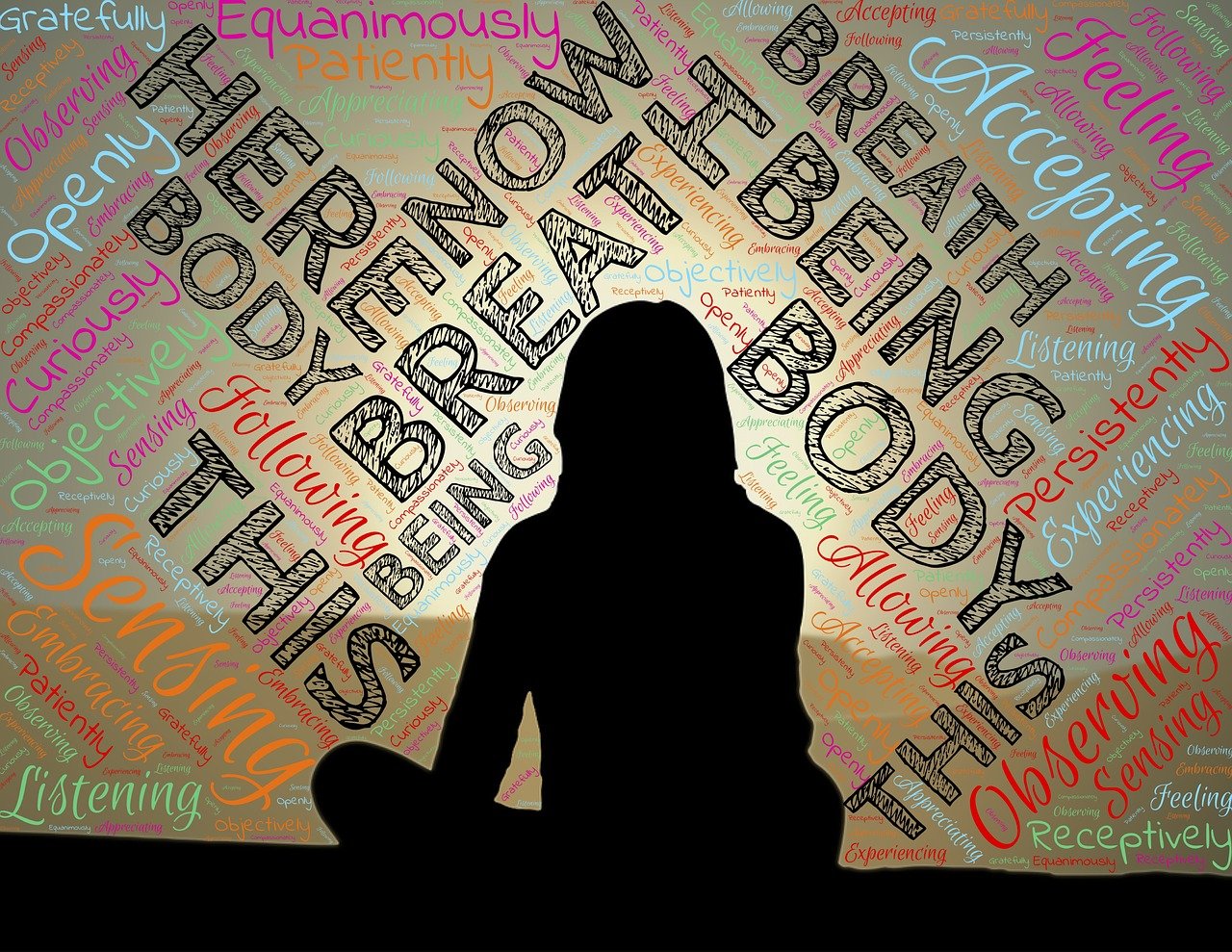
Blog about Breath and awareness
Transform Your Life with Mindful Breathing: Exploring the Synergy of Science and Spirituality in Achieving Inner Peace
ऊर्ध्वे प्राणो ह्यधो जीवो विसर्गात्मा परोच्चरेत् ।
उत्पत्तिद्वितयस्थाने भरणाद्भरिता स्थितिः ॥
I couldn't miss the opportunity to bring the reference of Vijñana Bhairava Tantra from Kashmir Shaivism while writing the blog. The above sloka sum it all up about mindful breathing. When Devi requested Bhairava to explain the doorway to divine blissfulness in a way she can understand it correctly and completely. Bhairva gave her the straightforward practical answer as mentioned in the sloka. It is out of the scope of this article to go much deeper into the sloka. Although the wordings are esoteric, what it essentially means is that we need be aware of the pause between in-breath and out-breaths. We need to keep our focus on the heart after inhalation and above the head after exhalation, so the awareness moves up and down between these two points.
Breathing is a simple yet powerful act that we often take for granted. It's our body's natural way of supplying essential oxygen to our cells, and it's something we do without even thinking about it. However, when we consciously focus on our breath and practice mindful breathing, we unlock incredible potential for growth, healing, and transformation.
Mindful breathing is the practice of paying attention to our breath in a non-judgmental way, observing the flow of air in and out of our bodies. This seemingly simple practice is a gateway to a whole new world of self-awareness, self-regulation, and inner peace. By learning to harness the power of our breath, we can achieve a state of mindfulness that brings harmony to our body, mind, and spirit.
In this article, we'll explore the science and spirituality behind mindful breathing, and uncover its numerous benefits for mental and physical health. We'll also discuss the five-minute breathing meditation, a powerful tool for stress relief and relaxation. So, let's dive in and discover how mindful breathing can truly transform your life.
The Science Behind Mindful Breathing
The physiological effects of mindful breathing are well-documented in scientific literature. By consciously controlling our breath, we can activate our body's relaxation response and reduce the harmful effects of chronic stress. This is because mindful breathing directly influences the autonomic nervous system, which is responsible for regulating essential bodily functions like heart rate, blood pressure, and digestion.
When we're stressed, our sympathetic nervous system (SNS) activates the "fight or flight" response, releasing stress hormones like cortisol and adrenaline. This is useful in short-term, high-stress situations but can be damaging when sustained over time. On the other hand, mindful breathing stimulates the parasympathetic nervous system (PNS), which counteracts the effects of stress by promoting relaxation and restoring balance to the body.
In addition to reducing stress, mindful breathing has been shown to improve cognitive function, enhance emotional regulation, and boost overall well-being. By focusing on our breath, we can sharpen our attention, increase our mental clarity, and cultivate a sense of inner calm. Furthermore, the practice of mindful breathing has been linked to positive changes in brain structure and function, such as increased gray matter density in regions associated with learning, memory, and emotion regulation.
The Spiritual Aspect of Mindful Breathing
While the scientific benefits of mindful breathing are undeniable, its spiritual significance cannot be overlooked. For centuries, various spiritual traditions have recognized the power of the breath as a vital life force and a gateway to higher states of consciousness. In Hinduism, prana is the vital life energy that sustains all living beings, while in Buddhism, breath awareness is a cornerstone of mindfulness meditation practices.
Mindful breathing helps us connect with our innermost selves and the present moment, transcending the constant chatter of our minds and the distractions of daily life. By grounding ourselves in the breath, we can cultivate a sense of inner peace, clarity, and wisdom that is essential for spiritual growth.
Moreover, mindful breathing is a powerful tool for self-transformation. As we become increasingly aware of our breath and the subtle shifts in our mental, emotional, and physical states, we develop a greater understanding of ourselves and our place in the world. This heightened self-awareness enables us to make more conscious choices, fostering personal growth and spiritual development.
Benefits of Mindful Breathing for Mental and Physical Health
The practice of mindful breathing offers a wide range of benefits for both mental and physical health. Some of these benefits include:
Reduced Stress and Anxiety
By activating the body's relaxation response, mindful breathing can effectively reduce stress and anxiety levels. This in turn helps to lower blood pressure, decrease heart rate, and improve overall cardiovascular health.
Enhanced Emotional Regulation
Mindful breathing helps us become more aware of our emotions and provides a tool for managing them more effectively. By focusing on our breath, we can create a space between our emotions and our reactions, allowing us to respond more thoughtfully and constructively.
Improved Sleep Quality
Practicing mindful breathing before bed can help to calm the mind and relax the body, making it easier to fall asleep and stay asleep. This can lead to improved sleep quality and increased overall well-being.
Greater Mental Clarity and Focus
By training our attention on the breath, we can strengthen our ability to concentrate and improve our cognitive function. This can lead to greater mental clarity, sharper focus, and enhanced problem-solving abilities.
Pain Management
Mindful breathing is an effective tool for managing chronic pain. By directing our focus to our breath, we can shift our attention away from the pain and develop a greater sense of control over our experience.
The Five-Minute Breathing Meditation
One powerful way to incorporate mindful breathing into your daily routine is through the five-minute breathing meditation. This simple practice involves focusing on your breath for just five minutes each day, cultivating mindfulness and inner peace. Here's how to do it:
- Find a comfortable, quiet place to sit or lie down.
- Close your eyes and take a few deep, cleansing breaths.
- Begin to focus on your breath, noticing the sensation of the air entering and leaving your nostrils.
- If your mind begins to wander, gently bring your attention back to your breath.
- Continue this practice for five minutes, gradually increasing the duration as you become more comfortable with the meditation.
Incorporating Mindful Breathing into Daily Life
There are numerous techniques to practice mindful breathing. The whole subject of Pranayama is about how to control life energy using different breathing practices which we will discuss in our future blogs. Nevertheless, mindful breathing doesn't have to be limited to formal meditation sessions. There are many opportunities throughout the day to bring awareness to your breath and cultivate mindfulness. Some suggestions include:
- Taking a few deep breaths before starting your day
- Practicing mindful breathing during breaks at work
- Using your breath as an anchor when faced with challenging emotions
- Focusing on your breath during physical activities, such as yoga or walking
By making mindful breathing a regular part of your daily routine, you can reap its numerous benefits and experience lasting transformation.
While mindful breathing can be a powerful practice on its own, it can also be combined with other spiritual practices for enhanced benefits. For example, many people combine mindful breathing with yoga, tai chi, or qigong, integrating breath awareness with physical movement. Others combine breath awareness with prayer or meditation, cultivating a deeper sense of connection with the divine.
Whatever your spiritual practice, incorporating mindful breathing can help to deepen your awareness and enhance your experience.
ऊर्ध्वे प्राणो ह्यधो जीवो विसर्गात्मा परोच्चरेत् ।उत्पत्तिद्वितयस्थाने भरणाद्भरिता स्थितिः ॥
Conclusion: Embrace the Transformation through Mindful Breathing
Mindful breathing is a simple yet powerful practice that can transform your life in countless ways. By focusing on your breath and cultivating mindfulness, you can reduce stress, enhance emotional regulation, improve sleep quality, sharpen your mental clarity, and cultivate a greater sense of inner peace.
Remember, you don't have to be a meditation expert to practice mindful breathing - all it takes is a few minutes each day to cultivate greater self-awareness and inner peace.
So, take a deep breath, and embrace the transformation that awaits you through the power of mindful breathing.
CTA:
Are you ready to transform your life with mindful breathing? Start by incorporating the five-minute breathing meditation into your daily routine. With consistent practice, you can unlock the incredible potential of your breath and achieve greater harmony and well-being in all areas of your life.




Leave A Comments
Your email address will not be published. Required fields are marked *